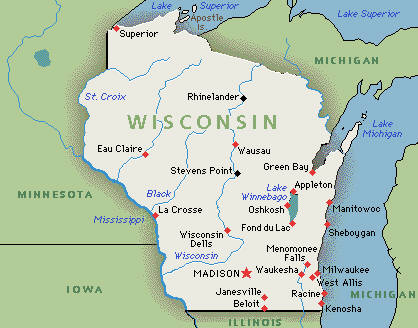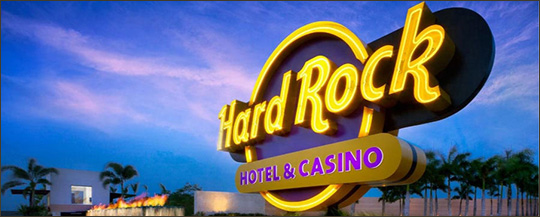There will be no Hard Rock casino in Wisconsin

The Republican Governor Scott Walker has just confirmed the rejection of the proposed construction of a Hard Rock Hotel & Casino complex that was estimated at $800 million, and to be built by the Menominee tribe in the south of the State of Wisconsin.
A bipartisan group of legislators urged the governor to reconsider his decision after a first rejection of the institution had been announced last week.
The fault is a contract with the Potawatomi tribe
The Menominee tribe pressured the government of Wisconsin for over a decade now to open a casino in the city of Kenosha.
They have also signed a joint venture agreement with the Hard Rock group to finally build its large complex in the area.
The hotel-casino was to extend over more than 37,000m² and host a games room with 2,700 slot machines and 125 table games including 24 tables dedicated to poker.
During the second half of January an agreement was signed with the government of Wisconsin.
Consequently, the recent decision to reject the draft of the Governor has surprised everyone.
Scott Walker said that, despite the potential benefits in terms of jobs and economic development, the complex would be too costly to the state.
In fact it would have the state $100 million, due to a contract with the Potawatomi tribe that has a casino in Milwaukee.
Under the terms of the agreement, the state is obliged to repay the tribe because of the loss of income due to the creation of a new gambling establishment in Kenosha.

A letter asking the Governor to reconsider his decision
Several lawmakers, including the chairman of the Assembly, Robin Vos, wrote to the governor asking him to reconsider his decision.
In this letter, they argue that compensation for losses caused to the Potawatomi tribe should be lower than expected and that the potential benefits of the Kenosha casino for the state, in terms of economic development and jobs are too high to deny them.
However, Scott Walker has reiterated his decision earlier this week.
He announced that he would not reconsider the rejection of the project, arguing that the potentially incurring economic impact is too great a risk to the taxpayer of the State of Wisconsin.










